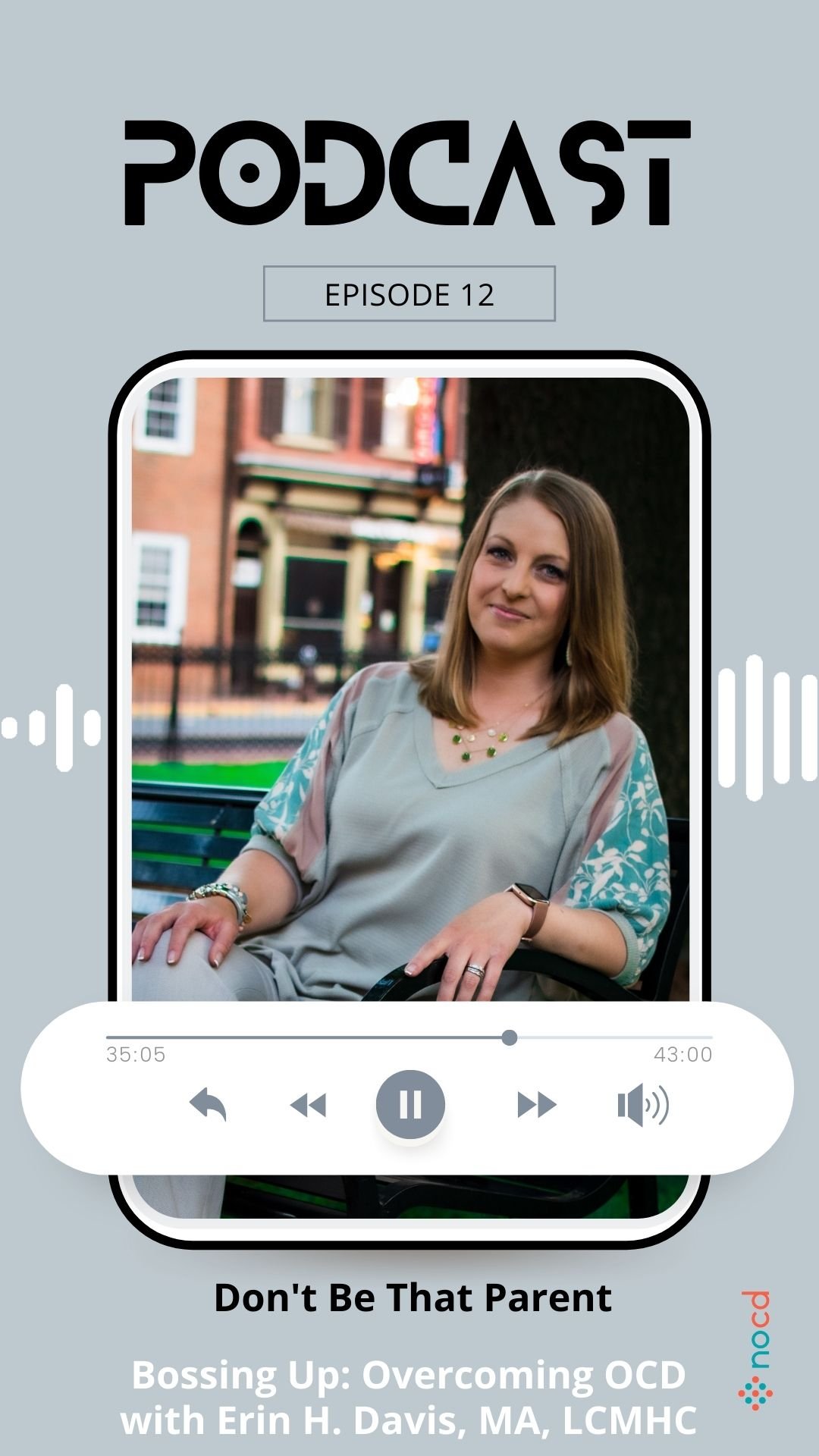Don’t Be That Parent
If you have a loved one struggling with OCD, you know how challenging it can be to support them.
This blog post will provide you with essential tips for supporting your loved ones with OCD & empower both you & them on their journey to recovery.
Understanding OCD
OCD comes in various forms, but one common subtype is Relationship OCD. Imagine having intrusive thoughts and fears about your partner or loved one constantly playing in your mind, no matter how hard you try to make them go away. This can put a strain on relationships and cause significant distress for the person experiencing it. It is crucial to recognize that OCD is not a reflection of reality but a result of a mental health condition that requires effective treatment.
Seeking Effective Treatment
The first step in supporting your loved ones with OCD is to encourage them to seek treatment. Breaking the cycle of OCD requires evidence-based treatment methods. Finding an OCD specialist who is trained in Exposure Response Prevention Therapy, the gold standard treatment for OCD, can make all the difference. The specialist will work with your loved one to develop strategies to manage their intrusive thoughts and fears, leading to improved mental well-being.
Breaking the Stigma
As a loved one, it is crucial to approach OCD with empathy and understanding. Avoid stigmatizing language or dismissing their concerns as irrational. Remember that your loved one already knows their thoughts and fears are unrealistic but cannot control them. Validation and empathy go a long way in helping them feel supported and understood.
The Power of Confidence and Validation
When interacting with your loved one, provide validation by acknowledging the challenges they face due to their OCD. Let them know that you understand and empathize with what they are going through. Avoid minimizing their concerns or telling them not to worry. Instead, offer confidence and be their cheerleader. Remind them that they can overcome their OCD and reassure them that they are more than their thoughts. Your unwavering support can make a significant difference in their journey towards recovery.
Avoiding Reassurance-Seeking and Enabling
One key aspect to be mindful of is not giving in to their compulsions or providing reassurance-seeking behaviors. While it may be tempting to provide answers or comfort, doing so can inadvertently reinforce their OCD. Encourage your loved one to recognize when their OCD is speaking and gently guide them towards therapy techniques instead. This may involve redirecting their attention, practicing exposure exercises, or self-soothing techniques.
Helping Your Loved One Not Give In To Avoidance:
OCD often leads to avoidance behaviors, such as avoiding certain situations or objects due to fears or triggers. It is important to support your loved one in confronting these fears rather than enabling avoidance. Encourage them to face their fears gradually and remind them of their capability to overcome them. Remind them that their fears are not based on reality and that by confronting them, they are taking a vital step towards recovery.
Educating Yourself
To better understand OCD and effectively support your loved ones, education plays a crucial role. Research, read books, and consult reputable sources to deepen your knowledge about OCD. This will enable you to have informed conversations, offer helpful advice, and provide appropriate guidance to your loved ones.
Conclusion
Supporting a loved one with OCD may feel challenging at times, but by implementing these tips, you can make a significant difference in their recovery journey. Remember the power of validation, empathy, and encouragement. By guiding them towards effective treatment options like NoCD and fostering a supportive environment, you can help your loved one overcome the challenges of OCD and find freedom from its grip. Together, we can break the stigma surrounding OCD and create a world of understanding and compassion for those living with this mental health condition.



